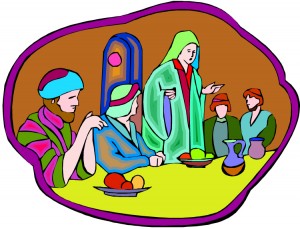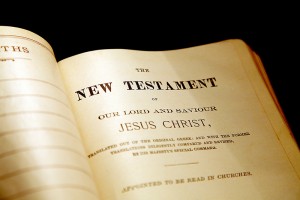Luke 7:36–37, The Pharisees… a woman… who was a sinner. The name Pharisee itself tells much about this sect or denomination within the first-century religious Jewish landscape. It derives from the Hebrew word perushim meaning “separatist,” and was born out of the fact that Pharisees didn’t associate with Am Ha-Eretz or the common people (Yeshua: a Guide to the Real Jesus and the Original Church, p. 86, by Ron Mosely), who in their view who were impure by the standards of the Levitical law (The Jewish Background of the New Testament, p. 203, by J. Julius Scott Jr.), and their high standards of holiness (Mosely, p 86).

Acting like an elite religious fraternity (The Sketches of Jewish Life, p. 208, by Alfred Edersheim), the Pharisees were known for their strict observance of the Torah or the law of Moses, as well as numerous additional laws or “traditions of the elders” that were added to the Torah along the way (From the Maccabeees to the Mishnah, p. 149, by Shaye J. D. Cohen; Scott, pp, 206–207; Edersheim, p. 217).
Though this sect probably numbered only 6,000 at the time of Yeshua (Cohen, p. 146), they wielded a great deal of power and influence in Jewish society, since they were viewed as the most accurate interpreters of the Torah (Scott, p. 203; Mosely, p. 92), and they were the leaders and teachers of the masses in the local synagogues (Cohen, pp. 147, 148).
For the Pharisee, personal holiness was a badge of honor. To remain a member of this elite sect, one was required to maintain a high standard of holiness relating to tithing, piety, cleanliness and ritual purity, or one would face demotion within the social status of this community, or worse yet, face excommunication and shunning (Mosely, p. 86).
It can be safe to say that the Pharisaic religious system promoted an elitist and holier-than-thou religious demeanor among many of its members who hyper-focused on legalism and religious form and trappings. The result was “a system of pure externalism, which often contravened the spirit of those very ordinances, the letter of which was slavishly worshipped” resulting in hypocrisy (Edersheim, p. 217).
For these reasons, this may be why the woman in Luke 7:37 was labeled as a sinner. It wasn’t that she was a sinner any more than anyone else, but that she was not part of any recognized religious sect that labeled her as being righteous as opposed to being a sinner. Because she was probably outside of the accepted religious system of her day, she was automatically given the label of a sinner. In our day, this would be like a church-going Christian viewing a non-church going person as a heathen.
The problem is this. Can we know for certain the condition of a person’s heart and their relationship with the Almighty simply because of their external religious involvements? This is what Yeshua is addressing in this passage—the condition of the heart. To Yeshua, the woman who was labeled as a sinner was much more righteous, in a certain sense, than those of the most preeminent religious club of the day. Look at her humble and repentant demeanor at the feet of Yeshua!
Yeshua was known for shining the sharp light of truth on a situation and then turning that situation on its head. The end result was that those who thought they were in first place spiritually, were now in last place, and those who were in last place were first. This gives added meaning to Yeshua’s words, “In the regeneration, when the Son of Man sits on the throne of his glory…many who are first will be last, and the last first” (Matthew 19:28–30).






